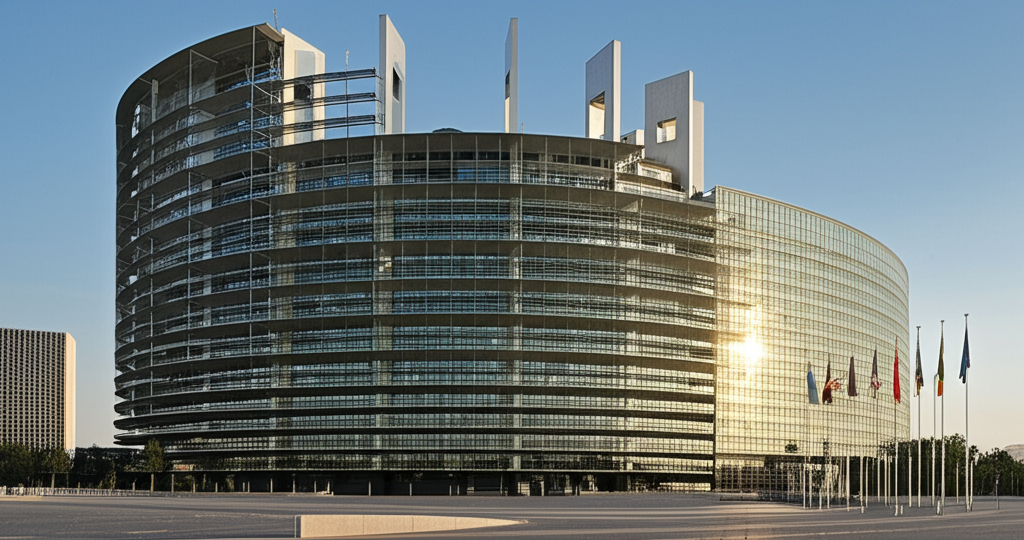Global AI Safety Summit Results in Historic International Agreement
In a historic development for artificial intelligence governance, representatives from 28 countries have signed the first binding international agreement on AI safety at the Global AI Safety Summit in Geneva. The agreement, officially titled the "Geneva Accord on Safe and Responsible AI Development," establishes shared principles, standards, and oversight mechanisms for advanced AI systems.
Key Provisions of the Agreement
The Geneva Accord includes several groundbreaking provisions:
- Mandatory Safety Evaluations: Requirements for rigorous testing and evaluation of advanced AI systems before deployment
- International Oversight Body: Creation of an International AI Safety Organization (IASO) to monitor compliance and coordinate research
- Information Sharing: Mechanisms for sharing safety research and incident reports across borders
- Risk Management Framework: Tiered approach to regulation based on AI system capabilities and potential risks
- Prohibited Applications: Ban on fully autonomous weapons systems and certain high-risk surveillance applications
The agreement represents a significant shift from the voluntary commitments and non-binding statements that have characterized international AI governance efforts until now.
Participating Nations
The 28 signatories include major AI developers and users:
- United States, United Kingdom, and European Union member states
- China, Japan, South Korea, and India
- Canada, Australia, and Brazil
- Several African and Middle Eastern nations
Notably, the agreement bridges geopolitical divides, with both Western democracies and authoritarian states finding common ground on the need for AI safety measures.
Industry Participation
While not formal signatories, major AI companies participated in the summit and have committed to implementing the accord's provisions:
- OpenAI, Anthropic, and Google DeepMind have pledged full compliance
- Microsoft, Meta, and Amazon have endorsed the agreement
- Several Chinese tech giants, including Baidu and SenseTime, have also signaled support
"This agreement represents a crucial step toward ensuring AI development remains safe and beneficial," said Sam Altman, CEO of OpenAI. "We're committed to implementing these standards and working with the international community to address the challenges of increasingly powerful AI systems."
Implementation Timeline
The accord establishes a phased implementation approach:
- Immediate: Formation of working groups to develop technical standards and evaluation methodologies
- Within 6 months: Establishment of the International AI Safety Organization headquarters in Geneva
- Within 12 months: Implementation of mandatory safety evaluations for frontier AI models
- Within 24 months: Full implementation of all provisions, including monitoring and enforcement mechanisms
Balancing Innovation and Safety
A key challenge in crafting the agreement was balancing safety concerns with the desire to promote beneficial AI innovation. The final text includes several provisions aimed at this balance:
- Regulatory requirements proportional to system capabilities and risks
- Streamlined processes for lower-risk applications
- Support for international research collaboration on safe AI
- Special considerations for developing nations and smaller entities
"This agreement demonstrates that safety and innovation can go hand in hand," said EU Commissioner for Digital Affairs Margrethe Vestager. "By establishing clear guardrails for the most powerful systems while enabling continued development, we're creating the conditions for responsible progress."
Challenges and Criticisms
Despite broad support, the agreement has faced criticism from various quarters:
- Some civil society organizations argue the provisions don't go far enough in addressing AI's societal impacts
- Industry groups have expressed concerns about implementation costs and potential innovation barriers
- Some nations have questioned the enforcement mechanisms and verification procedures
- Technical experts debate whether the safety evaluation standards can keep pace with rapid AI advancement
Historical Significance
Experts are comparing the Geneva Accord to other landmark international agreements on emerging technologies:
- The Nuclear Non-Proliferation Treaty, which established global norms for nuclear technology
- The Montreal Protocol on ozone-depleting substances
- International agreements on biological weapons and chemical weapons
"This agreement may well be remembered as a pivotal moment in the governance of advanced technology," said Dr. Helen Martinez, director of the Center for AI Policy. "For the first time, the international community has come together to establish binding rules before a potentially transformative technology has fully matured."
Next Steps
Following the signing ceremony, attention now turns to implementation:
- National legislatures must ratify the agreement
- Technical working groups will develop detailed standards and methodologies
- The IASO will begin staffing and organizational development
- Companies will start adapting their AI development processes to comply with the new requirements
A follow-up summit is scheduled for next year to assess progress and address any implementation challenges.
Source: United Nations

